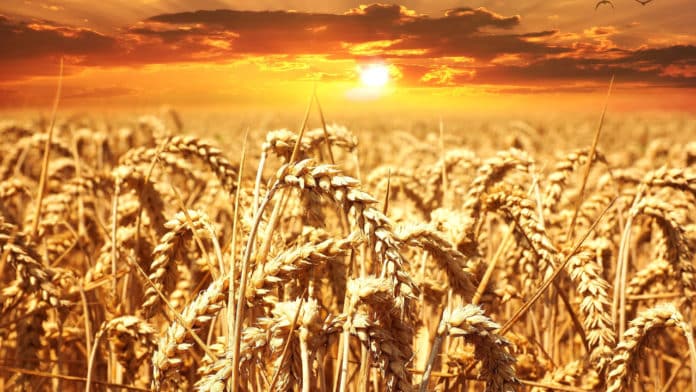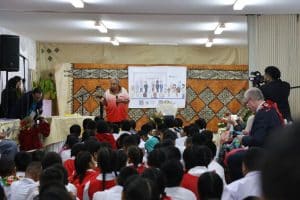Norway based crop nutrition company, Yara and Switzerland-based ag-tech company, Syngenta Group have entered into a partnership with Varda, a new ag-tech start-up founded by Yara. The two companies want to accelerate the adoption of Global Field ID.
Global Field ID is a new technology that will help facilitate field data discovery and data sharing in the agriculture and food industry. It is an API-based system that assigns a Unique ID number to every agricultural land plot to reduce data fragmentation in the ag-food supply chain and foster knowledge sharing and collaboration across the industry.
How Global Field ID works?
Varda digitally maps agricultural land and assigns unique IDs to land plots, creating a ‘QR code for fields’, delivered to users via an API. The aim of the service is to create a ‘common geospatial language’ for the whole industry. The companies recognise that having a unique ID for every field is a necessary step to effectively collaborate towards a more sustainable, resilient and transparent food system.
For farmers, using Global Field ID will improve communications between their digital farming tools and more efficient communication with stakeholders beyond the ‘farmgate’.
As things currently stand, farmers and agribusinesses use different formats to identify fields across their digital farming tools, which hinders interoperability and collaboration across the industry.
Davide Ceper, Varda CEO said, “We believe that Global Field ID is an indispensable step to break ‘data siloes’ and make information sharing simpler, reducing time spent on information aggregation, accelerating the spread of precision agriculture and the mobilization of climate finance that are necessary to drive efficiency, while preserving soils long term health. We are eager to engage with many more companies to establish Global Field ID as an industry standard, accelerating the transformation of our food systems”.
Benefits of using Global Field ID
The system will be used as an additional data layer within the companies’ own digital farming tools. It will help to build a shared reference framework to annotate field-level data, which will generate multiple benefits:
- A common identification system allows fields to be more easily paired by users and (digital) farming tools, resulting in increased connectivity and simpler data integration. This will also provide a benefit for farmers, offering improved data insights and cross-supply chain connectivity.
- The widespread adoption of a unique Global Field ID can significantly reduce risks of double-counting of land-based carbon sequestration or biodiversity improvement claims, enhancing the credibility and trust in land-focused climate finance and supporting existing verification protocols.
- By assigning a shared identifier to each field will make it simpler to establish an uninterrupted chain between agricultural input, field practices and crop supply chains.
Feroz Sheikh, Syngenta Group Chief Information and Digital Officer said, “We strive to improve connectivity between digital farming tools, making it more open, faster, and more efficient with the data owner’s consent. We invite other industry players to join this collaboration to improve the interoperability of systems to the benefit of farmers and the entire innovation ecosystem”.
Lars Røsæg, Yara Corporate Development & Deputy CEO said, “Adopting a common identification system across the industry is a major milestone for data standardization in agriculture. Our food system is under extreme pressure due to climate emergency and humanitarian crisis that can lead to a hunger catastrophe.”
Further he added, “Together, we must solve the food crisis in a way that safeguards nature, climate and livelihoods. Global Field ID is a piece of the puzzle and will both support farmers and benefit the climate. We hope the rest of the industry will join us in adopting this new industry standard.”
The service is currently available in France and the UK and will be progressively released in Brazil, the US and key European agricultural markets in 2023, with plans for further expansion in coverage and features going forward.








